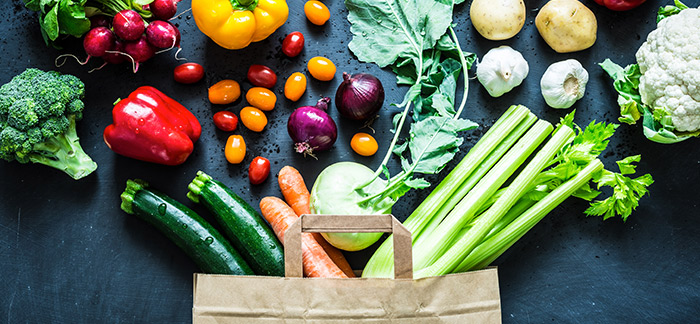
With the hype around organic food already decades old, it has become so much easier to find organic versions of our favourite fare at our nearest supermarkets. Restaurants and vendors offering organic produce are generally well-supported even in small towns around the country.
Yet, despite consumer interest, this category of produce continues to lug around with it a number of concerns and even controversies. What exactly does “organic” mean? Does what we think it means match with what is happening at farm-level? Why aren’t more farmers embracing this method? And is it worth the extra cost?
In 2018, the debates over organic food and its superiority to conventional ‘big agriculture’ continue to rage. Scientific studies and meta-analyses have failed to show a significant difference in nutrient value and taste between the two categories, and there has not been sufficient evidence to validate claims that organic meat, dairy and fresh produce has superior health and medicinal benefits.
Yet, many argue that such studies and meta-analyses cannot account for the more holistic view of the wider-reaching positive effects of true organic farming, which, as the South African Organic Sector Organisation explains, has the much broader goal of working to “regenerate and transform our economy, culture, farmlands, and society.”
It also seeks to spread food-growing amongst larger numbers of small-scale farmers and even backyard growers, to improve food security and help ensure that more people can access quality produce. The rise in popularity of practices like permaculture, homesteading and sustainable living amongst younger generations shows growing interest in the sort of outlook that the organic approach represents.

With this in mind, here are our tips for shopping organic, along with a few useful links to help you find your way through this maze:
- Inform yourself. Find out what the organic label means in your area, and what you can expect from organic concerns. For a good look at the details of organic farming and how it operates in South Africa, check out the The Agri Handbook.
- Find your local supplier. Ask your most-frequented supermarkets whether they plan to stock more organic options, let them know there is a demand for local organic foods, and find out for yourself who the farmers and suppliers are. For a trusted directory of everything from food to clothing suppliers, farms and restaurants, check out Go-Organic. There are a number of categories and filters to help you find anything organic you may be looking for.

- Support local: When you can’t find organic versions of the produce you like to stock, look for local produce. Its close proximity can mitigate some of the negative environmental impact of sourcing produce from further afield, and you might find smaller-scale concerns which employ organic practices but cannot afford the costly certification required.
- Check out online store that source and deliver various organic, free-range, and ethically-produced products. Some, like Faithful to Nature, supply a vast array of products countrywide, while others, such as Organic Footprints in Port Elizabeth, source and deliver organic meats, dairy and fresh produce specifically within one city.
- Visit farmers’ markets in and around your city, whether they’re exclusively organic markets or not. Take the opportunity to get to know the people behind the produce, and see which farmers’ stalls mesh well with your priorities.

While studies may not prove significant benefits just yet, the only negative effect that buying organic may have is on our pockets. But many consumers find the markup to be minimal, especially in fresh produce, and thus, ultimately, it is well worth it.
Date Published: 29 July 2018